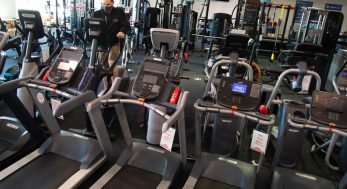Michael Kan
The Amusing World of Fitness and Health Tech at CES 2020
There’s no shortage of smart health and fitness tech on display at CES. At the first exhibition of the 2020s, we saw gear to change our workout routines, better monitor heart health, and meet the needs of an aging population.
There’s no shortage of smart health and fitness tech on display at CES. At the first exhibition of the 2020s, we saw gear to change our workout routines, better monitor heart health, and meet the needs of an aging population.
PCMag reviews products independently, but we may earn affiliate commissions from buying links on this page. Terms of use.

We’ve often reached to tech to help us keep in better shape, from the Jane Fonda VHS tapes found in suburban homes far and wide in the 1980s, through the fitness trackers and Peloton workout equipment of the 2010s.
If you’re searching for new, and sometimes even cleverly innovative, ways to stay healthy and fit, CES is a good place to start. This year’s show was crowded with tech products aimed to help you burn calories, better track your health, and deal with specific medical conditions.
Product designers didn’t always think inside the box—we saw some concepts that were decidedly unconventional at the show, both in the realm of smart health and outside it. Read on to find out what health tech wowed us.

















